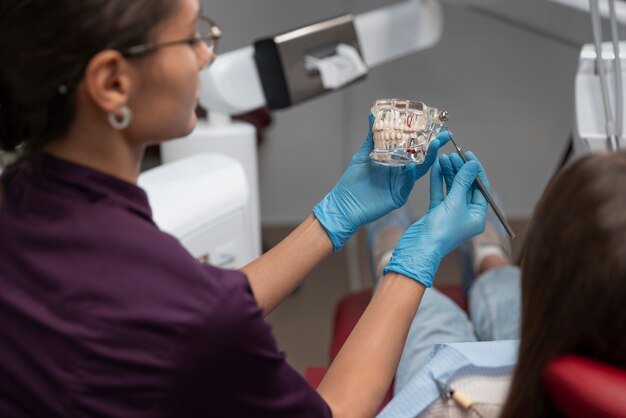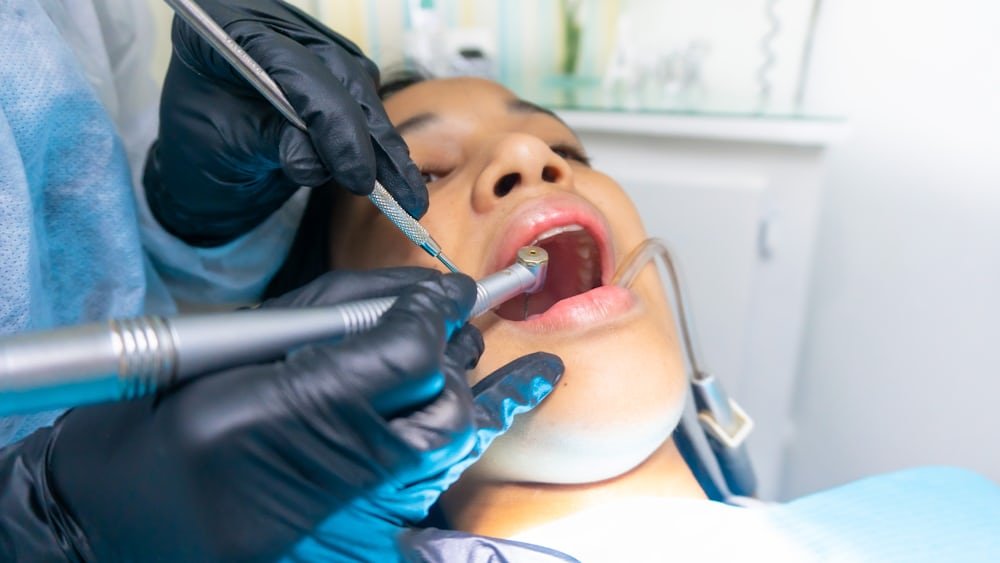Introduction
Tooth removal, or tooth extraction, is a procedure many people go through at least once in their lifetime. Whether it’s a damaged tooth, overcrowding, or wisdom teeth causing discomfort, there are several reasons why tooth removal may be necessary. But one of the first questions that comes to mind is, “How much is tooth removal?”
In this post, we’ll explore the average cost of tooth removal, factors that affect pricing, and what you can expect from the procedure. If you’re facing the prospect of tooth extraction, this guide will help you understand the costs and options available to make the best decision for your dental health.
How Much is Tooth Removal on Average?
On average, tooth removal costs between £50 to £350 in the UK and $75 to $500 in the US per tooth. Prices vary based on the complexity of the extraction and whether the tooth is impacted or easily accessible.
Quick Price Breakdown:
- Simple Extraction: £50-£100 ($75-$200)
- Surgical Extraction (e.g., Wisdom Tooth): £150-£350 ($200-$500)
These are general estimates, and costs may differ depending on factors like the location, clinic, and any additional treatments required.
Factors That Influence the Cost of Tooth Removal

The cost of tooth extraction isn’t fixed; several factors affect how much you’ll pay. Here’s a breakdown of the main elements to consider:
1. Type of Extraction Needed
Not all extractions are the same. Here’s a look at the two main types:
- Simple Extraction: Involves removing a visible tooth that’s not impacted or broken. This is a straightforward process, often performed with local anesthesia, and is generally less expensive.
- Surgical Extraction: Required for teeth that are impacted (such as wisdom teeth) or broken beneath the gum line. Surgical extractions are more complex and involve additional equipment or anesthesia, increasing the cost.
2. Location of the Clinic
Where you have the procedure done can affect the price. Clinics in larger cities or urban areas may charge more than those in smaller towns. Additionally, dental offices with specialized services may have higher fees.
3. Dentist’s Expertise and Credentials
The experience of the dentist performing the extraction can impact the cost. Specialists, such as oral surgeons, may charge more than a general dentist due to their additional training and expertise.
4. Anesthesia and Sedation Options
Most extractions are performed with local anesthesia, which is typically included in the cost. However, if you opt for sedation (such as IV sedation or general anesthesia), expect to pay extra. Sedation is more common for surgical extractions or if you have dental anxiety.
5. Additional Procedures or Aftercare
In some cases, your dentist may recommend additional procedures, such as a bone graft or stitches, which can add to the cost. You may also need pain relief medication or antibiotics post-procedure, which might be a separate expense.
What to Expect During Tooth Removal
If you’ve never had a tooth removed, here’s a step-by-step guide to help you understand the process.
1. Consultation and X-rays
- Before the procedure, your dentist will examine the tooth and take X-rays to assess its position and condition. This consultation will help determine the best extraction method and whether a surgical approach is necessary.
2. Anesthesia and Sedation
- Your dentist will administer local anesthesia to numb the area around the tooth. If you’re particularly anxious, they may offer sedation to help you relax.
3. The Extraction Process
- For a simple extraction, the dentist will use dental tools to loosen and remove the tooth. In the case of surgical extraction, they may need to make a small incision in the gum and possibly remove some bone around the tooth.
4. Post-Extraction Care
- After the extraction, your dentist will give you aftercare instructions to help with healing. This may include avoiding hard foods, applying cold compresses, and taking prescribed pain medication.
How to Find Affordable Tooth Removal Options

If you’re concerned about the cost, here are a few ways to find affordable options for tooth extraction:
- Shop Around: Prices can vary between clinics, so it may help to compare quotes from different dental offices.
- Check Dental Schools: Dental schools often offer services at a reduced rate. Procedures are performed by students under professional supervision, making it a safe and affordable option.
- Ask About Payment Plans: Some dental offices offer payment plans, allowing you to spread the cost over several months.
- Consider Dental Insurance: If you have dental insurance, check to see if it covers extractions. Many insurance plans cover at least part of the cost, especially if the extraction is medically necessary.
Conclusion: How Much Should You Expect to Pay for Tooth Removal?
The cost of tooth removal varies depending on the complexity of the extraction, the clinic, and any additional care required. On average, expect to pay between £50 and £350 ($75 to $500) per tooth. While it’s natural to be concerned about costs, keep in mind that delaying tooth removal can lead to complications and more expensive treatments down the line.
By researching options, considering dental insurance, and choosing a reputable clinic, you can manage the costs and ensure a safe and smooth experience.
FAQs
Q1: How much does a simple tooth extraction cost?
A simple extraction usually costs between £50 and £100 ($75 to $200), depending on location and clinic.
Q2: What’s the difference between a simple and surgical extraction?
A simple extraction removes a visible tooth, while a surgical extraction is required for impacted or broken teeth and may involve incisions.
Q3: Does insurance cover tooth removal?
Many dental insurance plans cover extractions, especially if they’re medically necessary. It’s best to check with your provider for details.
Q4: Is tooth removal painful?
The area is numbed with local anesthesia, so you won’t feel pain during the extraction. Some soreness is normal afterward, which can be managed with pain relief.
Q5: Can I eat after a tooth extraction?
It’s best to stick to soft foods for the first few days and avoid hot, crunchy, or spicy foods to allow the area to heal.
Tooth extraction may sound daunting, but knowing what to expect and understanding the costs involved can make the process easier. Remember, prioritizing your dental health is always worth the investment!
visit for more Blogs chiangraitimes

